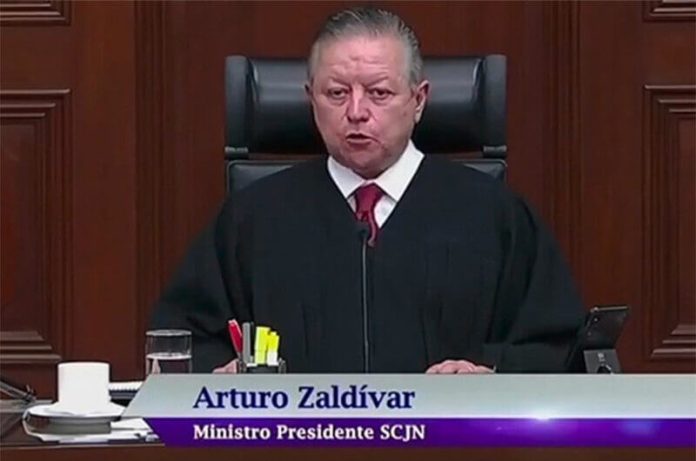The Supreme Court (SCJN) has effectively decriminalized abortion across Mexico with a unanimous decision on Tuesday.
In response to a challenge to abortion restrictions in Coahuila, the court ruled that the criminalization of abortion is unconstitutional, setting a precedent for the legalization of early term abortion in all 32 states.
Outside cases of rape and those in which an expectant mother’s life is endangered, abortion during the first 12 weeks of pregnancy is currently only legal in four states: Mexico City, Oaxaca, Hidalgo and Veracruz.
Chief Justice Arturo Zaldívar declared Tuesday a historic day for all Mexican women, especially the most vulnerable.
From now on, no woman can be prosecuted for having an abortion in the first 12 weeks of pregnancy without violating the ruling of the SCJN and the Mexican constitution, he said.
“From now on, a new route of freedom, clarity, dignity and respect for all … women begins,” Zaldívar said.
“… Today is another step forward in the historic struggle for their equality, dignity and for the full exercise of their rights,” he said.
Justice Luis María Aguilar Morales, the proponent of the decriminalization of abortion in Coahuila, said that “never again” can a woman or a person with the capacity to give birth be criminally punished for having an abortion.
“Today the threat of prison and the stigma that weighs on people who freely decide to interrupt their pregnancy is banished,” he said.
Outside the court, pro-life activists condemned the court’s ruling, while feminist groups celebrated the decision online.
“Historic ruling!” reproductive rights group GIRE declared on Twitter.
Mexico, still a largely conservative nation with the second highest number of Catholics in the world after Brazil, is now the most populous country in Latin America to decriminalize abortion.
The court’s decision came after women’s groups in recent years ramped up pressure on authorities to legalize it across the country at numerous protests.
President López Obrador, a staunch advocate for participatory democracy, previously proposed holding a referendum on the subject but on Tuesday morning backed the SCJN’s capacity to rule on the issue.
“The best thing in this case is that if it’s already in the Supreme Court it should be resolved there,” he said, adding that he wouldn’t take a side because doing so would not be “the most prudent thing” to do.
